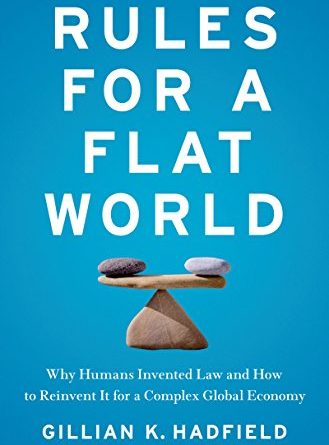The ground is shifting beneath our feet. Technology and globalization continue to uproot and reshape daily life and economics. Global supply chains are growing more deeply embedded in every region of the world. Digital platforms connect billions around the planet in ever more complex networks of data and exchange. In 2005, Thomas Friedman reduced these phenomena to one phrase, the title of his massively successful book: The World is Flat.
The flat world is one of tremendous possibility, but it also poses new challenges to stability and shared prosperity. How will we come up with the new rules we need to make sure we continue to innovate and grow but also become a fairer, safer, and more inclusive global community? Law and economics professor Gillian K. Hadfield picks up where Friedman’s book left off, peeling back the technological layer to look at the rule systems that guide global integration-our legal infrastructure-and argues that our existing approaches to making rules are no longer working. They are not only too slow, costly, and localized for increasingly complex advanced economies. Our rules also fail to address looming challenges such as poverty, instability, and oppression for the four billion living in poor and developing countries, largely outside of any formal legal framework.
Following a rich and sweeping overview of the long-term evolution of social rules that made complex human societies and economic interdependence possible, Hadfield makes the case for building a more agile market-based and globally-oriented legal infrastructure. Combining an impressive grasp of contemporary economic globalization with an ambitious re-envisioning of our global legal system, Rules for a Flat World will transform our understanding of how to best achieve a more sustainable and vibrant global economy.














